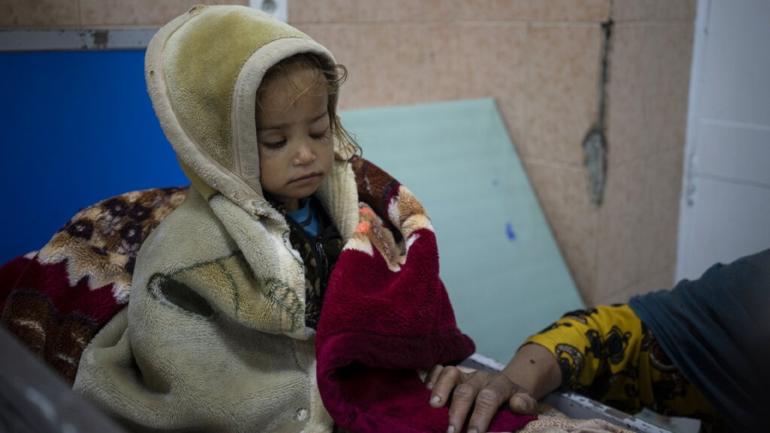Afghanistan is now considered among the world’s worst humanitarian crises.
According to the United Nations, more than half of the country’s 39 million people don’t have enough food to eat and young children are at risk for acute malnutrition. A severe drought and water shortages, combined with an economic crisis under the Taliban government, are pushing the country to the brink. The United States and Western countries cut off financial assistance to the Taliban government, leaving millions of Afghans without salaries for months. The United Nations has raised more than one billion dollars in humanitarian aid, but many fear it won’t be enough. Hospitals are already overwhelmed with young patients.
Joining the discussion:
- Shelley Thakral is the UN World Food Programme spokesperson in Afghanistan.
- Sayed Fahim Sadat is a political analyst and former head of the Department of Masters in International Relations at Kardan University.
- Ahmad Shah Mohibi is the Founder and President of Rise to Peace.
- Omar Samad served as the Afghan Ambassador to France and Canada and is a nonresident senior fellow with the South Asia Center of the Atlantic Council.
For more:
Food from WFP will be the only lifeline for millions of Afghan families facing hunger this winter.
Here's our plan to reach 8.7 million people at risk of famine: https://t.co/p78dNZOdN4 #Afghanistan pic.twitter.com/Dm0Zn3OLPx
— World Food Programme (@WFP) November 17, 2021
Afghanistan hunger: 'The worst humanitarian crisis on Earth' https://t.co/zraDO8JnG9
— BBC News (World) (@BBCWorld) November 8, 2021
The Taliban foreign minister Wednesday penned an “open letter”to the US Congress, warning of a mass refugee exodus from Afghanistan unless the US unblocks more than $9 billion in AFG central bank assets & ends other financial sanctions against the country.https://t.co/55qWGmf10o
— VOA DEEWA (@voadeewa) November 17, 2021
 CGTN America
CGTN America

